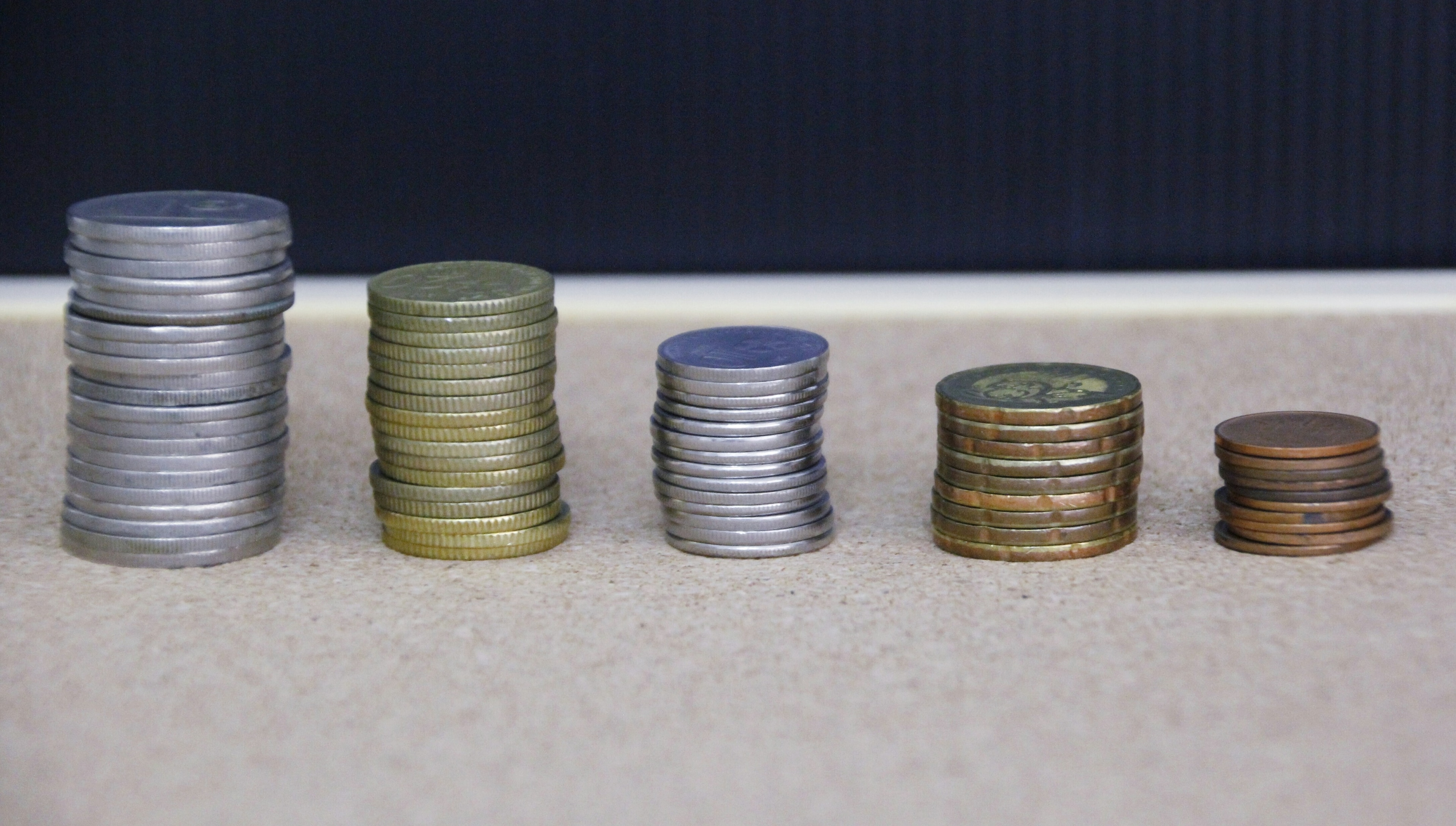Do banks really create money out of thin air?


Get involved with our crowdsourced digital platform to deliver impact at scale
Stay up to date:
Financial and Monetary Systems
The phrase “banks create money” forms part of the popular discourse, but it conveys an erroneous representation of the banks’ role in the money creation process.
The role of banks is primarily that of an intermediary between buyers and sellers in, for example, a transaction involving the purchase of a house.
The topic is particularly relevant today because the notion that banks can create money out of nothing has generated public anger. Fuelled by the recent banking crisis, organisations, individuals and public officials have used public media to call for an end to the current practice of money creation by banks. They have also called an overhaul of the current banking system.
Without the correct understanding, the misguided belief that banks create money out of nothing will continue to influence models of the financial sector and monetary policy interventions. It will also influence the scope of policies aimed at regulating banks such as Basel III and other regulations being formulated in the wake of the recent financial crisis.
So how does the money creation process actually work?
What is money?
Money is commonly defined according to its functional roles. These are money as a measure of value (also referred to as a unit of account), a medium of exchange, a store of value, and a standard of deferred payments.
Modern money consists primarily of two types of monetary instruments. The first is the notes and coins issued by central banks (fiat money). This is most commonly understood by the proverbial man on the Clapham omnibus to be money.
The second type is composed of bank liabilities, also referred to as deposits, credit money or bank money. The measurement of money supply in modern economies therefore includes measures of both the amount of cash money and bank money.
Bank money is a record of debt-credit relations. The creation of this type of money has been understood to be the result of an inter-temporal exchange transaction between parties since the earliest influential discussions on modern bank money.
Money creation in the absence of banks
The traditional view adopted in the money supply debate is that banks create bank money by granting loans. This explanation is then extended to suggest that banks thereby create money out of nothing. However, this is an inadequate caricature of the process of bank money creation.
That banks act as facilitators can be illustrated by a simple narrative about Mr B who wishes to buy residential property without the aid of banking institutions.
We use residential property because residential mortgage loans are at the heart of explanations of the recent financial crisis. It is argued that the irresponsible creation of money by banks out of nothing fuelled this process.
Mr B enters into an agreement with Ms S who owns a house and wishes to sell it. The price of the house is $1m. Mr B does not have the $1m in cash money available and therefore must come to some debtor arrangement with Ms S.
Mr B offers to pay off the $1m in monthly instalments over 20 years. In the absence of a bank, this is the best that Ms S can expect.
This transaction would take place whether banks existed or not, because a need exists for the managed exchange of property.
Enter the bankers
The transaction holds a number of disadvantages for Ms S. The first is that she may not want to wait 20 years to receive her cash.
Secondly, Ms S is exposed to solvency and default risk. Thirdly, Ms S faces an administrative burden. Ms S would have to spend 20 years collecting outstanding amounts and keeping a record to this effect. Ms S thus faces potentially considerable risks, inconveniences and other associated transaction costs.
An opportunity therefore exists for an institution able to reduce Ms S’s disadvantages. Ms S’s disadvantages can be resolved by inserting a traditional banking institution into the transaction.
Banks emerge because, as intermediaries, they reduce a broad spectrum of associated transaction costs.
Ms S may not need the cash money, or all of it, and the bank could merely make it clear to Ms S that she can make withdrawals from the bank’s coffers to the value of the transaction at any time.
Being a claim for cash money on demand, Ms S’s asset is no longer a claim for periodical payments from Mr B, but a claim for cash money on demand from the bank. This obligation is recorded by the bank as a liability accounting entry called a “call deposit”, which is to say, as bank money.
The increase in bank money thus reflects money created as a result of an underlying transaction, which had taken place externally from the bank and has been recorded by the bank. The ceded claim against B is the bank’s matching asset.
Modern Banking
In modern day banking, the seller of the property does not need to seek out a buyer. The seller will put the property on the market subject to the suspensive condition that the prospective buyer will obtain financing from a bank.
With the involvement of the bank, the seller no longer needs to carry out a due diligence exercise, register a mortgage bond or cede the claim to the bank. The seller no longer has concerns that the buyer will default.
From the seller’s point of view, the liquidity, solvency and default risks with respect to the buyer have been resolved.
The bank need not deal directly with the seller to take cession of the buyer’s obligation. The bank knows that once it issues a guarantee to the buyer for the purchase of the property, the guarantee will be presented to the bank and treated as deposited.
The bank will thereafter acquire an obligation to the depositor. By issuing the guarantee, it will authorise a deposit (bank money) to the account of the depositor (seller), obviating the need for any cession.
The obligation to the depositor (the seller) is matched by an outstanding liability on the buyer’s account (a bank asset), if not within a single bank, then within the larger banking system.
To an outsider, it appears as if by recording an asset account entry connected to the buyer and by recording a corresponding deposit entry, the bank has created money out of nothing; this is the illusion of the bank having created money.
But this is only the prima facie appearance and not the truth of the matter because the outside observer has neglected to acknowledge that the deposit value records the value-for-value exchange conducted through an underlying transaction. In reality, the seller no longer has a house and the buyer now has a house.
![]()
This article is published in collaboration with The Conversation. Publication does not imply endorsement of views by the World Economic Forum.
To keep up with the Agenda subscribe to our weekly newsletter.
Author: Robert Vivian has been Professor of Finance and Insurance at the University of Witwatersrand since 1989. Nicholas Spearman is a Lecturer & First Year Economics Coordinator at University of the Witwatersrand.
Image: U.S. dollar notes are seen in this picture illustration taken at the Bank of Taiwan in Taipei November 11, 2010. REUTERS/Nicky Loh
Don't miss any update on this topic
Create a free account and access your personalized content collection with our latest publications and analyses.
License and Republishing
World Economic Forum articles may be republished in accordance with the Creative Commons Attribution-NonCommercial-NoDerivatives 4.0 International Public License, and in accordance with our Terms of Use.
The views expressed in this article are those of the author alone and not the World Economic Forum.
Related topics:
The Agenda Weekly
A weekly update of the most important issues driving the global agenda
You can unsubscribe at any time using the link in our emails. For more details, review our privacy policy.
More on Financial and Monetary SystemsSee all
Lucy Hoffman
April 24, 2024
Michelle Meineke
April 24, 2024
Annamaria Lusardi and Andrea Sticha
April 24, 2024
Emma Charlton
April 24, 2024
Piyachart "Arm" Isarabhakdee
April 23, 2024
Kate Whiting
April 23, 2024






